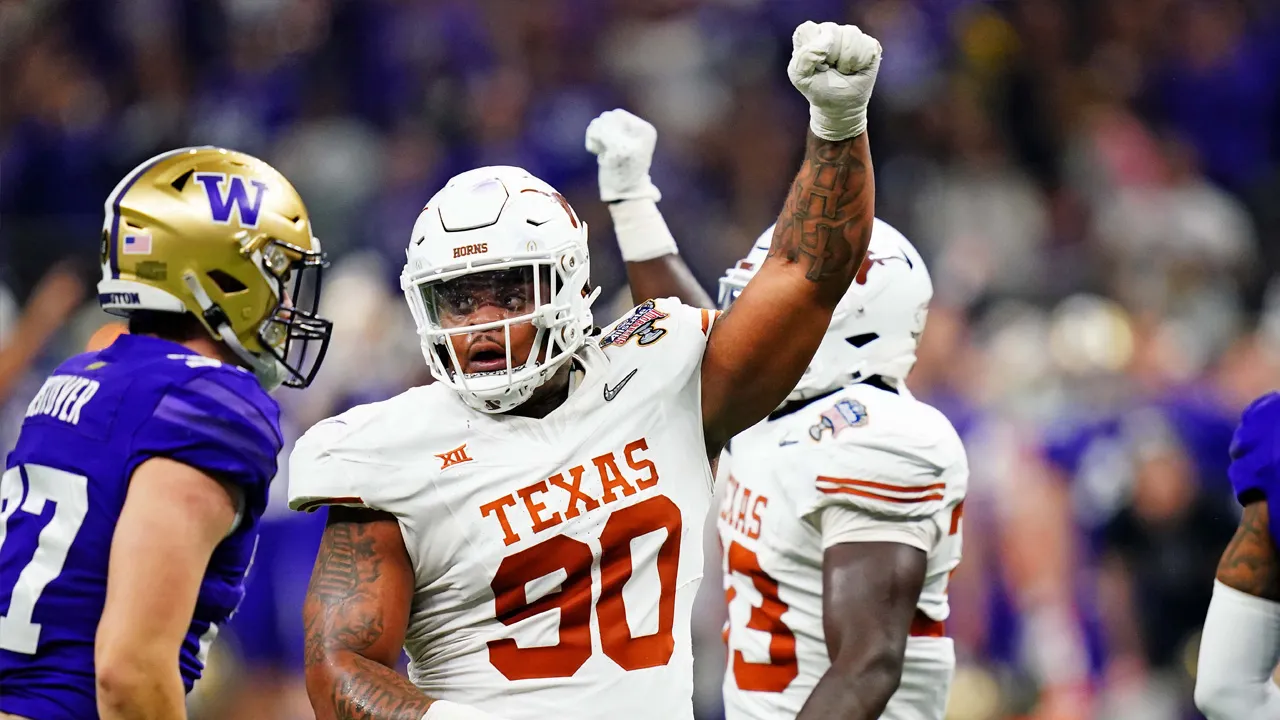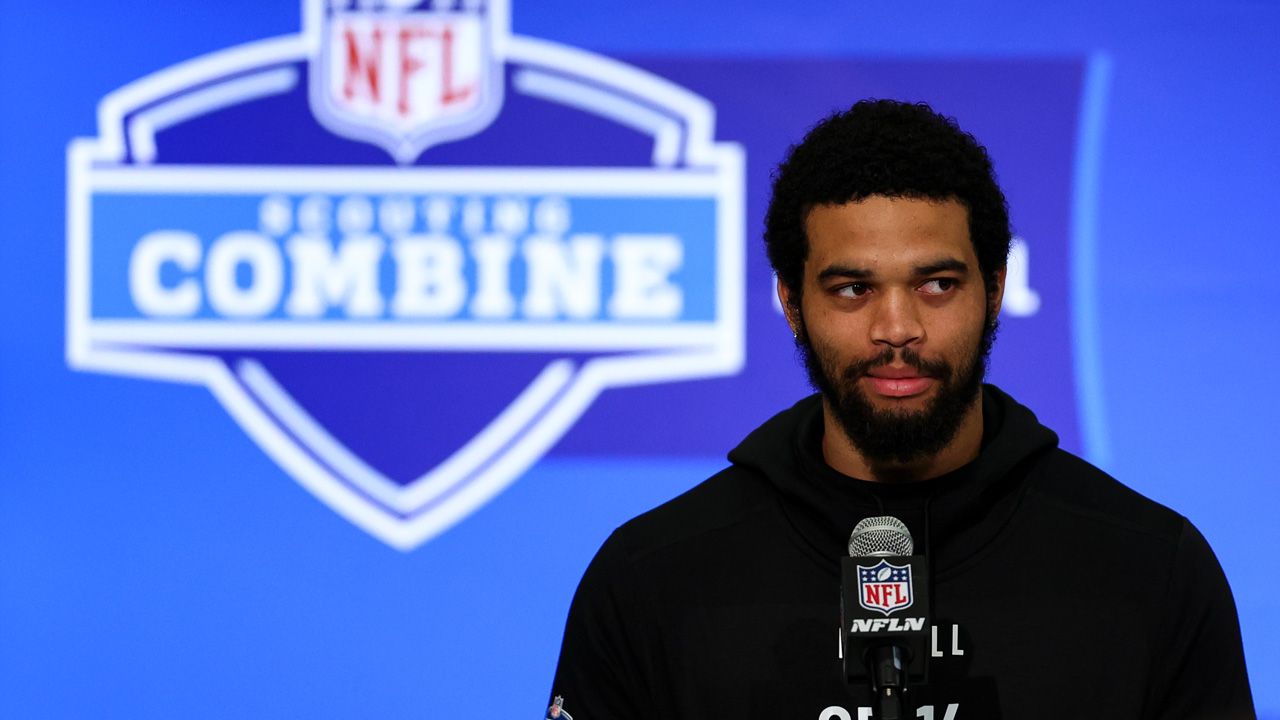
Mike Flaherty is a member of the old school. He grew up playing basketball in the 1960s and coaching in the 1970s. In a distinguished 36-year career, he has earned a reputation as one of Illinois' leading high school coaches, from Mendel to Thornridge to Mount Carmel.
Flaherty has experienced the good and the bad of high school basketball, from the invention of the Internet and other modern technology to transferring to grammar school recruiting to AAU to street agents to shoe companies. Along the way, he figured out a way to win about 700 games.
"Older coaches look back with rose-colored glasses. I'm not sure it was better then. It seems like it was a simpler age with less distractions. But was it better? It was different," Flaherty said.
Stay in the game with the latest updates on your beloved Chicago sports teams! Sign up here for our All Access Daily newsletter.
"If I was the czar of basketball, I would limit AAU ball to just the summer. We have had kids miss school to play AAU. I understand that is how recruiting is done today. That is reality. I can live with it. But the NCAA could make changes that would help by eliminating recruiting in the summer.
"Obviously, the whole idea of transferring is more common today than in the old days. Because of the Internet, kids are promoting themselves and being recruited out of grammar school. It is hard to get a kid who comes into school without a reputation. I remember when a transfer was out of the ordinary. Now if you don't get a kid, it is out of the ordinary. I wish kids would be more loyal to their programs. But that isn't the way it is today."
Flaherty and other old-timers, including St. Joseph's Gene Pingatore, Warren's Chuck Ramsey, St. Patrick's Mike Bailey and retired coaches Steve Goers of Rockford Boylan and Roy Condotti of Westinghouse and Homewood-Flossmoor, have watched the landscape of high school basketball change, not always to the benefit of the sport or the kids.
Change has come with AAU and traveling teams in the spring, summer and fall and the growing technology that allows youngsters to promote themselves on Internet websites and Twitter and other avenues that are used to hype kids and turn them into rock stars.
News
Do coaches feel they still have the luxury of disciplining them or are they too often coddling them because they fear the kids might transfer to another program?
"I won't coddle them," said Pingatore, who has been coaching for 43 years. "If they want to leave, let them leave. I don't want people who don't want to be here. We've lost kids for various reasons. This isn't the place to come to be a star. They don't like discipline or they don't like to be told they can't shoot beyond 10 feet. We run our program the same way.
"Discipline is important. We are old school and still attract people who want to be a part of it. Parents have their own website to promote their kids. That doesn't mean they can play in a program."
Pingatore insists there is too much promotion today, mostly generated by summer coaches. "Their motive isn't to help kids, just to get more publicity for themselves and more money from shoe companies. How many summer coaches place kids in Division III schools? They want to deal with the blue chippers, the Division I prospects, the ones who make names for them."
He seconds Flaherty's motion to do away with summer recruiting. "Summer coaches aren't into instruction. Exposure is the big selling point to the parents. That's why the NCAA is the culprit. They should eliminate summer evaluation and put the power back in the hands of the high school coaches," Pingatore said.
Condotti concedes that the old school method of coaching is probably gone. He contends that it is more difficult to run a program now than it was in the 1970s, 1980s and 1990s. In Condotti's era, there was no Internet, no outside influences, no one concerned about who is rated in the top 100, no parents complaining about playing time for their kids.
"I noticed a change when AAU began rolling," Condotti said. "It was so difficult to ask someone to spend three hours at Bloom playing three games in a row in a gym that was 100 degrees. Or would you rather go to the Peach Jam in Georgia and have a vacation and play basketball? It opened my eyes to the AAU experience. Now I see coaches go through more than I ever had to go through.
"We checked grades in my era. The hardest thing you had to do was be a student and a basketball player. There was no Internet in those days. Now it influences 14, 15 and 16-year-old kids. It is more difficult to mold a unit into a disciplined group that is working toward a common goal, to play for each other."
And then there is the parental issue. "They are looking for their kids to go to college and get an education for free. I understand that. But parents have to trust the coach that is running the program their son or daughter is in. They have to have a working relationship with the high school coach, who is more responsible for taking a kid on a trip, more
responsible for molding a young boy into a young man. I don't think AAU does that," Condotti said.
"The coach interacts with the kid all day long, not just at practice. It is a more difficult job today than it used to be. It can still be fun if you are who you are. If you have to change who you are and change your values, if you worry about a kid leaving your program or worry about parents, it ceases to be fun."
Condotti said this is the "have it now" generation, the era of instant rankings and instant gratification. He argues that kids haven't changed. They still are 15 and 16. They still want to play basketball.
"But everything else has changed," he said. "The influences that affect their lives, what they have access to, that's what has changed. Coaches have to be more patient with getting the payback now. If a kid comes back and says you were right, that you helped him, that you did the right thing and impacted his life in a positive way, that's why it is all worthwhile."
But Goers, who retired as the winningest coach in Illinois high school history (881-264), believes the individual has become bigger than the whole, that their persistence on individual glory detracts from team goals.
"How many transfers do you see based on the relationship between kids who play on AAU teams in the summer?" Goers said. "It hurts high schools and colleges, too. If the NCAA would go back and say that college coaches can only see players compete with their high school teams during the regular season and only see them play in the summer with their high school teams, it would take power away from the AAU and they wouldn't have a stranglehold on the kids."
But Goers concedes it probably never will happen because that's the way the NCAA and the college coaches and the shoe companies want it. "College coaches like the system the way it is because it doesn't conflict with their own practices. And they want to see all the elite players playing together at one time in one place," he said.
Meanwhile, Ramsey and Bailey admit the structure of the game has changed but they insist the core values will remain. "It is a matter of getting the right kids in your program," Bailey said.
"With rankings and the Internet, everyone feels they have to go after the top 50 eighth graders and top 20 sophomores. The coaches have forgotten to look at kids with values as persons rather than players. You need talented players but if you look at teams that have done well, it is down to the kids who know how to play together and fit into a team setting.
"Sure, it is harder to find those kids now even in your own school because this generation is a me-first generation. It is more about 'Am I going to get a college scholarship?' rather than 'What is best for our team?' Kids are being told they are going to be a college player when they are in eighth grade. Parents look at it as free tuition money. Kids start playing for themselves and the future rather than the high school team."
The trick in coaching today, Bailey said, is finding a kid who is less gifted but knows how to blend into a team concept.
"It is harder to find those kids," he said. "The red flag for me is when you are talking to parents and ask what their goals are for their son. Would you rather see your son be an All-Stater or win a state title at St. Patrick? Most would rather see their son be an All-Stater. That's a red flag for me. My wife can pick out the good players in an eighth grade tournament."
Ramsey, who is retiring after this season, believes coaches can still work with kids and develop discipline. He admits some kids won't always respond to an old school philosophy, like being unselfish and playing for old alma mater, but he thinks kids will see those values.
"It is different, no doubt about that," Ramsey said. "Kids play for a lot of different coaches, on a lot of different levels. But high schools and AAU can co-exist. Kids have always transferred. But today there is more publicity. Kids want to go where they can win or they can play."
Ramsey said he hasn't had to change his philosophy over the years. "I still deal with parents the same way I always have. I am more than happy to communicate with parents over how their son can be a better student and a better citizen and a better player. But I won't talk about playing time. That is a losing proposition for everyone," he said.
"Kids earn their playing time in practice and games. They are evaluated by coaches who are impartial. Parents are more involved than ever before. They have a big financial investment in their kids. AAU isn't cheap. But I believe that the old school philosophy as far as it involves team play, discipline and accountability will continue."


